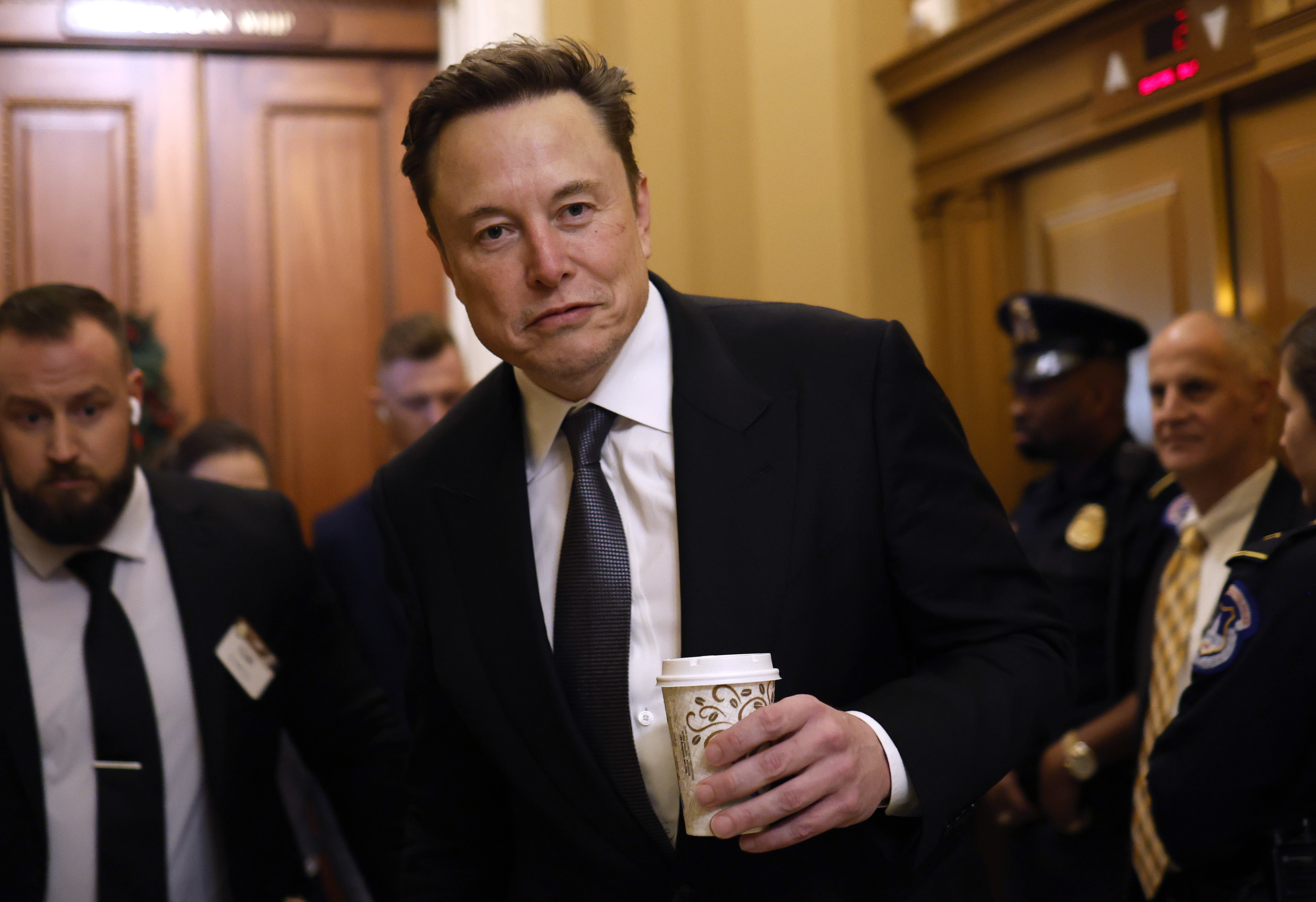There's a classic two-part episode of the Simpsons in which billionaire Mr. Burns devises a dastardly scheme to block out the sun, making all of Springfield reliant on the energy delivered by his nuclear power plant. We're living through a real-life version of this scenario (metaphorically).
Transparency is the sunlight of democracy. It's a simple concept—without transparency, we can't see what's going on. At every turn, President Donald Trump and his oligarchic allies, the real-life embodiment of Mr. Burns, are trying to blot out the sun by filling the skies with so much bull**** that no one knows what's what.
Consider Trump's alliance with the billionaire tech bro class. He and Elon Musk have combined to turn Twitter into an extremely online conservative's fever dream. Trump has also browbeaten Mark Zuckerberg into dumping content moderation and fact checking from Facebook, Instagram and any other Meta properties, as well as dumping on the journalists who do the fact checking in the first place. And despite getting the ball rolling on a TikTok ban during his first administration, Trump has managed to set himself up as the app's savior, with the Chinese social media company all too happy to play along.

Musk and Zuckerberg have decided that fact checking is somehow censorship and that instead the solution to bad information is more information. The result? Their platforms are now awash in misinformation, disinformation, fake news, rumors, sh*tposts, memes, outright propaganda, and yes, a bit of genuinely good content. Actual journalism simply cannot compete in these spaces, not least because the algorithms are deliberately rigged against it. There is so much contradictory and confusing information out there that the most reasonable course for any well-meaning user is to disbelieve all of it.
Soviet and East German propagandists understood this move long ago, and their modern-day successors in the Russian intelligence sector have been using a similar strategy around the globe for years. The goal of propaganda is not necessarily to make you believe something that is untrue—it's to make you believe nothing at all.
That sort of existential nihilism towards the information space is exactly the point. It's the way the rising tide of autocracy is meant to defeat democracy. But neither East Germany's Stasi secret police nor the KGB's successor, the FSB, could have ever imagined they would wind up with the most powerful companies in the world—companies that literally control the global flow of information and monitor our every move—executing their vision for them.
Trump is also rolling this approach out at the federal level. Steve Bannon's infamous strategy during Trump 1.0 was to "flood the zone," keeping the public on their heels with a constant stream of fresh outrages. Today, the strategy is being used on a much larger scale. The goal is not just sensory overload, it's an attempt to make it impossible for any of us to really understand what's going on here.
There are the constant announcements of new policies, both official and quasi-official. The White House and the Pentagon have both announced plans to cycle seasoned reporters out of their briefing rooms to make room for right-wing pundits and influencers.
Government websites mysteriously go offline. Scientific data gets deleted. During Trump's first administration, some of his family and staff took some minimal grief for conducting official business through unofficial, encrypted apps like WhatsApp. Now everything is in the shadows: agencies are being purged, and broad policies are being enacted by unelected associates of the president who are neither government employees, nor subject to any public accountability.
All these actions work together to block out the sun, making our government less transparent and less accountable. Americans need to work harder to peer through all his deceitful haze. After all, democracy depends on the sunshine.
Clayton Weimers is the executive director of RSF USA, the North American branch of Reporters Without Borders (RSF). He oversees an office which monitors press freedom across English-speaking North America and advances RSF's global priorities to advocate for journalist safety and everyone's right to information.
The views expressed in this article are the writer's own.














)





 English (US) ·
English (US) ·